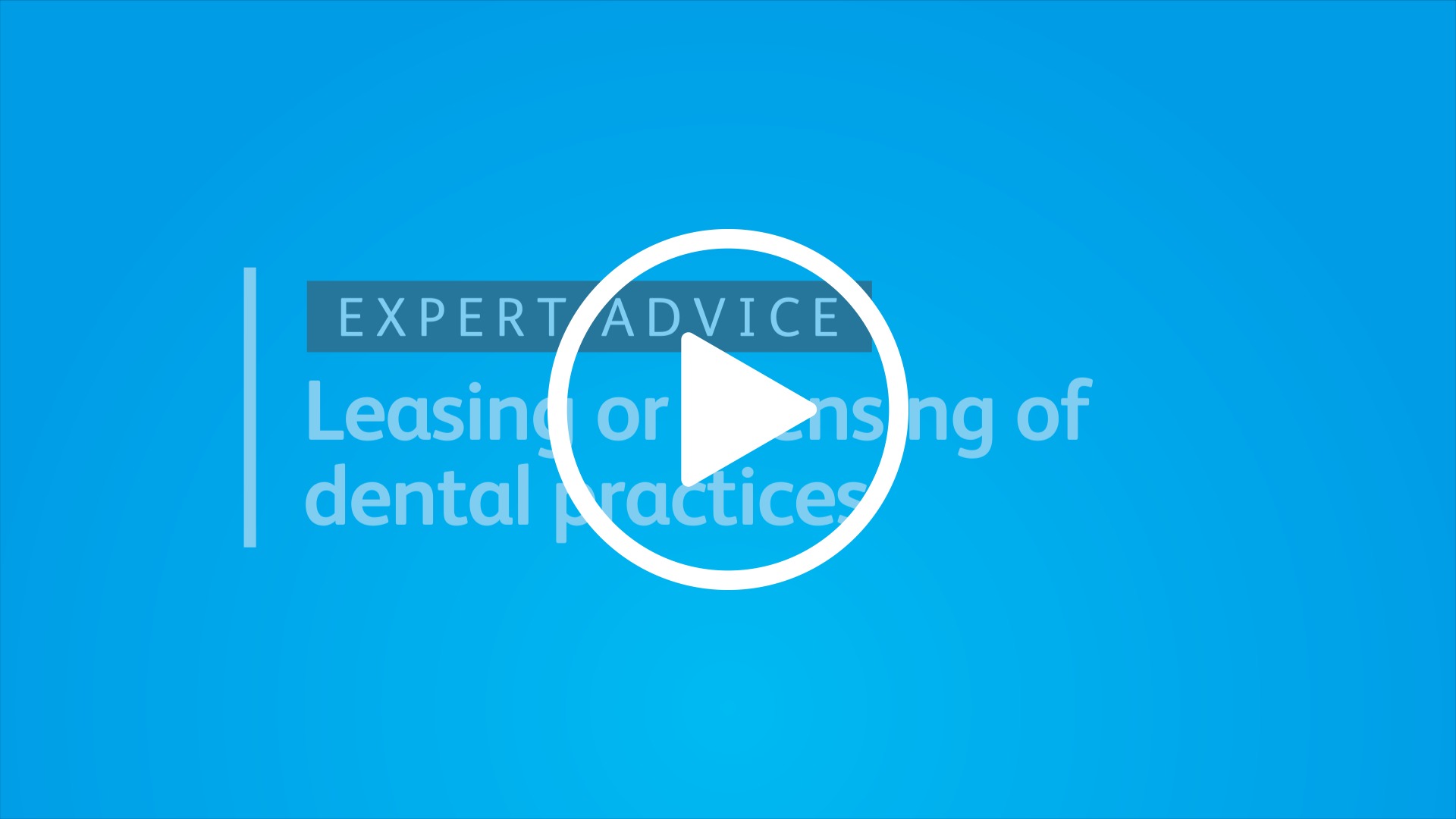Overview
For many dentists, buying the premises for their practice is not an option, so finding the right property and negotiating a lease is crucial. You must be aware of aspects to look for (and to avoid) alongside understanding the implications of each clause and your legal obligations (and protections).
If you rent premises, your status as the occupant will carry various responsibilities. Understanding the extent of these and the responsibilities of the landlord will allow you to plan for developments and work within the limits of the agreement. Leasing part of your practice to another professional (an associate, for example), has implications for you and the occupant that should be reflected in any working arrangement.
Renting premises will involve you in a lease or licence negotiations. Both require you to make payments and accept certain obligations: a lease gives you formal rights over the property; a licence gives you permission to use the property. Understanding your status, your rights and your responsibilities will help you to feel secure in your premises.
Royal Institution of Chartered Surveyors (RICS), has issued a Code on leasing a commercial property, which are guidelines on leasing a commercial property. This Code was re-issued in 2023 to replace the 2020 professional statement. There are no changes to the regulatory requirements and material changes have been made.
RICS professional standards are the result of pan-industry discussion between representatives of landlords, tenants and other trade bodies, including the Law Society.
Key learning points
This advice should help you negotiate a fair working arrangement – under a leasing or licensing arrangement. It explains:
- The main terms of a lease or licence
- Your rights and responsibilities if leasing premises
- Agreeing and reviewing rent, and planning for increases
- When a lease can be renewed and the steps you should take
- Issues that could affect your security of tenure.

